Overview
The Nephrology Department focuses on the diagnosis, treatment, and management of kidney-related diseases and conditions. Our team of skilled nephrologists is dedicated to providing comprehensive care for patients with chronic kidney disease, hypertension, kidney stones, and other renal disorders. Utilizing advanced diagnostic tools and personalized treatment plans, we aim to preserve kidney function and enhance the quality of life for our patients. Our multidisciplinary approach ensures that each patient receives the most appropriate and effective care.
TREATMENTS & PROCEDURE
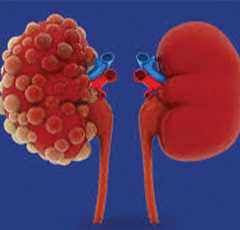
Personalized treatment plans to manage and slow the progression of chronic kidney disease.
CKD management includes regular monitoring, medication, dietary changes, and lifestyle modifications. Our goal is to control underlying conditions like diabetes and hypertension, delay disease progression, and improve overall kidney function.
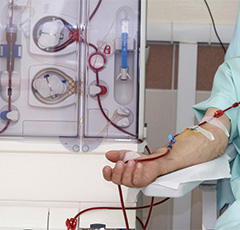
Essential treatment for patients with end-stage renal disease to filter waste and excess fluids from the blood.
Dialysis can be performed as hemodialysis or peritoneal dialysis, depending on the patient’s condition and preference. It helps maintain electrolyte balance and remove waste products, improving quality of life for those with kidney failure.
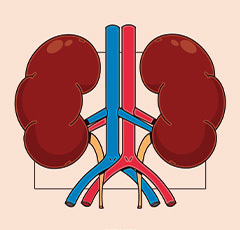
Advanced surgical procedure to replace a failing kidney with a healthy donor kidney.
Kidney transplantation involves the surgical placement of a healthy kidney from a donor into a patient with end-stage renal disease. Our team provides comprehensive pre- and post-transplant care to ensure the best possible outcomes.

Effective strategies to manage high blood pressure and prevent kidney damage.
Hypertension management includes medication, lifestyle changes, and regular monitoring to control blood pressure levels. Managing hypertension is crucial for preventing kidney damage and maintaining overall health.
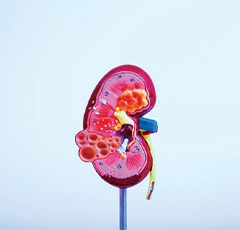
Immediate and effective treatment for sudden loss of kidney function.
AKI treatment involves identifying and addressing the underlying cause, managing complications, and supporting kidney recovery. Early intervention is key to preventing long-term kidney damage and improving outcomes.
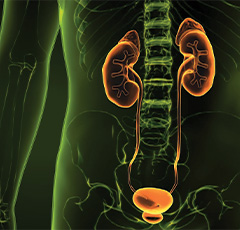
Comprehensive management of diseases affecting the kidney's filtering units.
Treatment of glomerular diseases includes medications, lifestyle changes, and sometimes plasmapheresis to reduce inflammation and proteinuria. Our goal is to preserve kidney function and prevent progression to chronic kidney disease.
Personalized treatment plans to manage and slow the progression of chronic kidney disease.

CKD management includes regular monitoring, medication, dietary changes, and lifestyle modifications. Our goal is to control underlying conditions like diabetes and hypertension, delay disease progression, and improve overall kidney function.
Essential treatment for patients with end-stage renal disease to filter waste and excess fluids from the blood.

Dialysis can be performed as hemodialysis or peritoneal dialysis, depending on the patient’s condition and preference. It helps maintain electrolyte balance and remove waste products, improving quality of life for those with kidney failure.
Advanced surgical procedure to replace a failing kidney with a healthy donor kidney.

Kidney transplantation involves the surgical placement of a healthy kidney from a donor into a patient with end-stage renal disease. Our team provides comprehensive pre- and post-transplant care to ensure the best possible outcomes.
Effective strategies to manage high blood pressure and prevent kidney damage.

Hypertension management includes medication, lifestyle changes, and regular monitoring to control blood pressure levels. Managing hypertension is crucial for preventing kidney damage and maintaining overall health.
Immediate and effective treatment for sudden loss of kidney function.

AKI treatment involves identifying and addressing the underlying cause, managing complications, and supporting kidney recovery. Early intervention is key to preventing long-term kidney damage and improving outcomes.
Comprehensive management of diseases affecting the kidney's filtering units.

Treatment of glomerular diseases includes medications, lifestyle changes, and sometimes plasmapheresis to reduce inflammation and proteinuria. Our goal is to preserve kidney function and prevent progression to chronic kidney disease.
Diseases treated
FAQs
CKD is a long-term condition where the kidneys gradually lose function. It requires regular monitoring, lifestyle changes, and medication to manage symptoms and slow progression.
Candidates for kidney transplantation are typically patients with end-stage renal disease who meet specific medical criteria. A thorough evaluation is conducted to determine eligibility.
Hypertension can cause kidney damage over time, and kidney disease can raise blood pressure. Managing hypertension is essential for preventing and treating kidney disease.
Diabetic nephropathy treatment involves controlling blood sugar levels, managing blood pressure, and using medications to protect kidney function, preventing progression to CKD.
Dialysis filters waste, excess fluids, and toxins from the blood, performing the function of failing kidneys. It can be done through hemodialysis or peritoneal dialysis.
AKI can be caused by conditions that reduce blood flow to the kidneys, direct kidney damage, or urinary tract obstructions. Prompt treatment is crucial for recovery.
Symptoms include severe pain in the back or side, blood in urine, nausea, and frequent urination. Immediate medical attention can help manage and treat kidney stones effectively.
Glomerulonephritis is inflammation of the kidney’s filtering units, causing blood and protein in the urine. Treatment focuses on reducing inflammation and preserving kidney function.
Nephrology Doctors
















